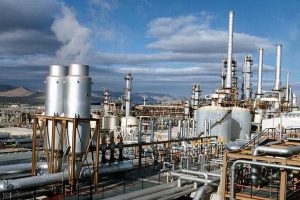Difference Between Natural Bitumen And Petroleum Bitumen: Comparison Features + uses!
The difference between natural bitumen and petroleum bitumen is in their origin, chemical composition, and physical properties. Natural bitumen, or mineral bitumen, is extracted from mines and is a product of long-term geological processes on crude oil. In contrast, petroleum bitumen is a byproduct of crude oil refinement and is obtained through the distillation of oil in refineries. Therefore, the main differences between petroleum and natural bitumen are in their chemical composition, purity level, oil content, saponification value, number of acids, applications, physical properties, extraction methods, and price—all of which we will explain in more detail in this article from the Iran ETrade blog.
What is natural bitumen?
The difference between natural bitumen (gilsonite) and petroleum bitumen is in their origin and composition: Natural (mineral) bitumen is derived from hydrocarbon deposits in mines and has high resistance. In contrast, petroleum bitumen is a byproduct of refining crude oil and is more pure.
To accurately examine natural vs petroleum bitumen, we must first define them. Natural bitumen is a type of bitumen that forms over millions of years from the decomposition of organic matter deep within the earth and is typically solid or semi-solid.
This type of bitumen contains a high percentage of heavy hydrocarbons and mineral compounds, which makes it harder and more resistant to oxidation compared to petroleum bitumen.
(Click for information on bitumen prices.)
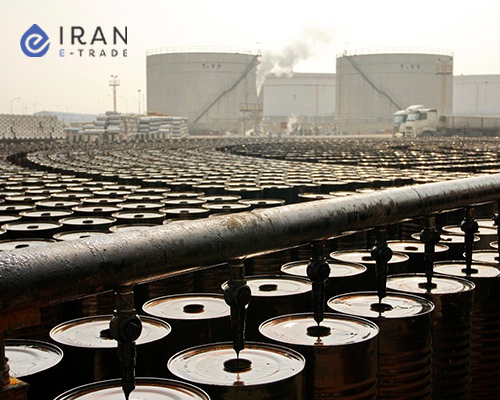
Uses of Natural Bitumen
One of the main differences between natural bitumen and petroleum bitumen is in their usage. Natural bitumen, one of the oldest sources of bitumen, is extracted from hydrocarbon deposits in mines. Due to its high resistance, stable compounds, and greater durability, it has many applications in various industries such as:
- Producing durable and long-lasting asphalt for road construction
- Waterproofing buildings and industrial facilities
- Manufacturing paints, anti-corrosion coatings, and sealing products
- Enhancing the composition of petroleum bitumen to improve its quality and resistance
(Click to read about Soft Bitumen.)
What is petroleum bitumen?
Petroleum bitumen is a sticky, hydrocarbon-based substance manufacturers produce by refining crude oil. It is the final product of crude oil distillation process. Also, based on its physical and chemical properties, it is applicable in road construction, waterproofing, and the production of bitumen-based products.
Types of Petroleum Bitumen
Each type of petroleum bitumen has specific applications in road construction, waterproofing, sealing, and the construction industry. For instance:
- Penetration bitumen: For road surfacing and asphalt
- Oxidized bitumen: Suitable for waterproofing and insulation
- Bitumen emulsion: A mix of bitumen and water for cold applications
- Cutback bitumen: A mixture of bitumen and petroleum solvents for specific uses
Petroleum Bitumen Distillation Process
In the refinery, the manufacturers subject crude oil to high temperatures in a distillation tower to separate its lighter compounds like gasoline and diesel. The heavy residue that contains complex hydrocarbons is then collected as petroleum bitumen and, depending on the requirements, is modified or oxidized for use in various applications.
(Click to read about Natural Bitumen.)
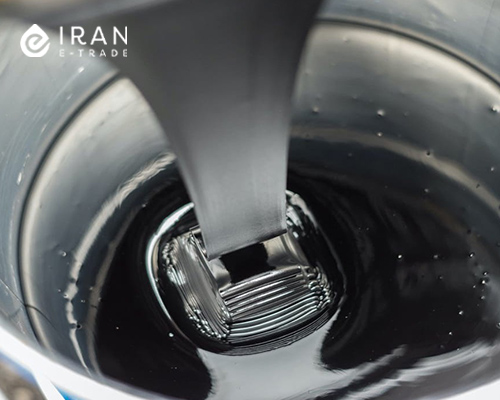
Difference Between Natural Bitumen and Petroleum Bitumen
In examining the difference between natural bitumen and petroleum bitumen, it is evident that natural bitumen contains much more impurities than petroleum bitumen. Due to this characteristic, petroleum bitumen is more flexible and is a better option for use in road construction and waterproofing industries.
Bitumen exists in two main types: natural (mineral) and petroleum, each with different chemical and physical characteristics, and they have different uses. Therefore, in this section, we explain the differences between natural and petroleum bitumen:
1. Difference Between Petroleum and Natural Bitumen in Terms of Sulfur Content
One notable difference between natural bitumen and petroleum bitumen is their sulfur content. Natural bitumen generally has a higher sulfur content (between 3% and 8%) because it is formed from natural deposits and has been enriched with sulfur compounds over millions of years due to geological activities.
In contrast, petroleum bitumen has lower amounts of sulfur (usually less than 3%) because many impurities and excess compounds are removed during its refining process.
2. Difference Between Natural and Petroleum Bitumen in Terms of Purity
In terms of purity, petroleum bitumen vs natural bitumen shows a clear contrast. Petroleum bitumen has higher purity due to the refinement process and controlled composition, resulting in fewer extraneous materials.
In contrast, natural bitumen typically contains more impurities due to the presence of inorganic compounds and minerals, which can affect its physical properties.
3. Difference Between Natural and Petroleum Bitumen in Terms of Oil Content
To accurately compare natural bitumen and petroleum bitumen, you must consider their oil content. For instance, petroleum bitumen hashigher amounts of light and volatile oils, which enhances its flexibility and adhesion.
In contrast, natural bitumen has a lower oil content, which makes it harder and more brittle, and it is mainly used for specific applications such as waterproofing.
4. Difference Between Petroleum and Natural Bitumen in Terms of Saponification Value and Acid Content
Natural bitumen has a higher saponification value and a greater number of acids compared to petroleum bitumen because it contains more oxygenated and mineral compounds.
This characteristic gives natural bitumen different adhesive properties in certain applications and alters its chemical behaviour when interacting with water and other substances. In contrast, petroleum bitumen has a more uniform chemical structure and shows lower saponification activity.
(Click to read more about The Best Bitumen Solvent.)
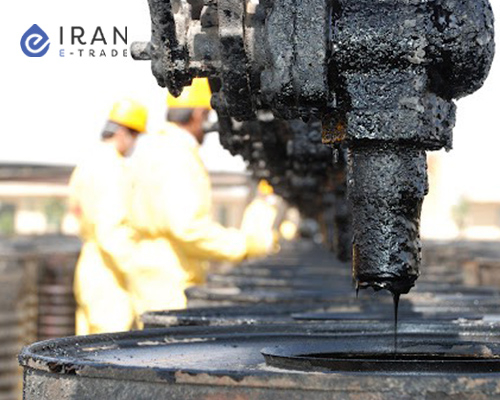
5. Comparing the Price of Natural and Petroleum Bitumen
Beyond their structural differences, an important difference between natural bitumen and petroleum bitumen is their pricing. The cost of natural and petroleum bitumen varies depending on their extraction method, level of refinement, and industrial applications.
As you know, when comparing prices, petroleum bitumen is generally cheaper than natural bitumen due to mass production and standardized refining processes.
However, natural bitumen, with its more limited sources, extraction difficulty, and specific applications, is more expensive and is mostly applicable in specialized and industrial projects.
6. Difference Between Natural and Petroleum Bitumen in Extraction Methods
Natural bitumen is directly extracted from natural mines and is usually solid or semi-solid in the earth’s layers. After extraction, this bitumen undergoes a series of mechanical and thermal processes that turn it into a usable material in various industries.
However, the key difference between natural bitumen and petroleum bitumen is that bitumen manufacturers produce petroleum bitumen through the distillation of crude oil in refineries.
Moreover, depending on the processing, petroleum bitumen has various types such as penetration bitumen, oxidized bitumen, and emulsion bitumen.
7. Difference Between Petroleum and Natural Bitumen in Chemical Composition
Natural bitumen has a higher percentage of sulfur, heavy metals, and mineral compounds. In contrast, petroleum bitumen is primarily composed of aromatic and saturated hydrocarbons, with fewer mineral impurities.
This difference between natural bitumen and petroleum bitumen has resulted in petroleum bitumen having a more uniform structure, making it more suitable for precise engineering applications.
8. Physical Properties in the Difference Between Petroleum and Natural Bitumen
In terms of physical characteristics, petroleum vs natural bitumenreveals noticeable differences. Natural bitumen is generally harder, more brittle, and has a higher softening point compared to petroleum bitumen.
On the other hand, petroleum bitumen, due to its more uniform chemical composition, is more flexible and adhesive. Additionally, petroleum bitumen has better adhesive properties at lower temperatures. In contrast, natural bitumen, due to its impurities, may perform differently under certain conditions.
9. Difference Between Natural and Petroleum Bitumen in Applications
Petroleum bitumen’s main uses are in road construction, waterproofing buildings, producing bituminous membranes (isogam), and asphalt production.
Due to its uniform chemical composition, high adhesion, and suitable flexibility, it is widely applicable in creating durable, waterproof, and resistant surfaces in construction and civil engineering projects.
10. Comparing Natural and Petroleum Bitumen in Terms of Processing Costs
Petroleum bitumen has a lower production cost due to its industrial production and refining processes. However, depending on the type of processing, it may have additional costs such as chemical modifications or enhancing additives.
On the other hand, Natural bitumen, due to its more complex extraction methods and the need for mechanical processing and purification, generally has higher production costs compared to petroleum bitumen.
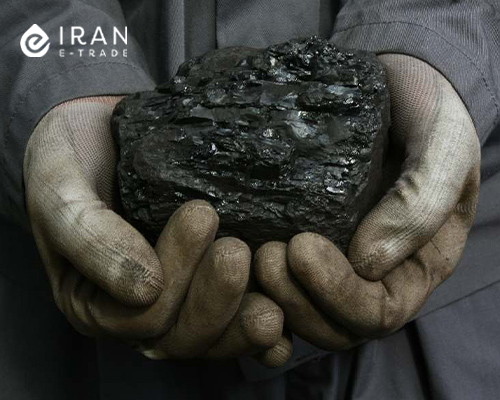
Key Characteristics of Natural and Petroleum Bitumen
For a more detailed comparison between natural and petroleum bitumen, consider their distinct features:
Characteristics of Natural Bitumen
- High sulfur content
- Harder
- More durable
- Greater soap-like properties
- Suitable for specialized industries
Characteristics of Petroleum Bitumen
- High adhesion
- Greater flexibility
- Uniform composition
- More affordable
- Suitable for road construction and waterproofing
Frequently Asked Questions Regarding petroleum bitumen vs natural bitumen
In this section, we address common questions about differences between natural and petroleum bitumen:
What Are the Other Names for Natural Bitumen?
Common names for natural bitumen include: rock asphalt, Vacuum batuum, and extracted bitumen.
Is Petroleum Bitumen More Expensive Than Natural Bitumen?
Petroleum bitumen is usually more expensive than natural bitumen due to its more complex refining and production process.
What Is the Use of Natural Bitumen in Paint Manufacturing?
When considering the difference between natural bitumen and petroleum bitumen, their applications are also important. Natural bitumen has many uses in paint manufacturing as an adhesive, stabilizer, or anti-corrosion coating.
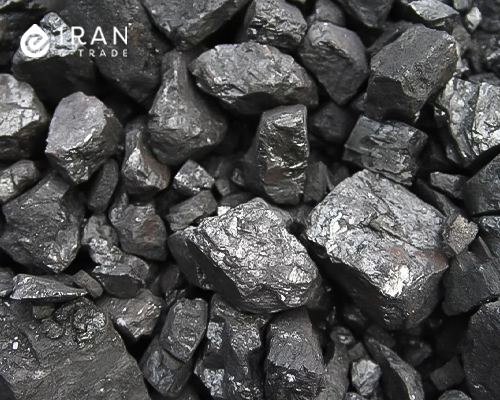
source: twnsacredtrust, infinitygalaxy, wikipedia
Bitumen Price
- Petroleum Products and Petroleum Derivatives: Introduction + Uses
- Oil Refineries in Iran: Complete List + Comparison
- Gasoline Producing Refineries in Iran: 12 Major Refineries
- Largest Oil Producers in the World: The Top 13 Countries...
- The Largest Bitumen Refineries In The World: Top 20 Refineries...
- What Is An Oil Lubricant: Types, Applications + Production





